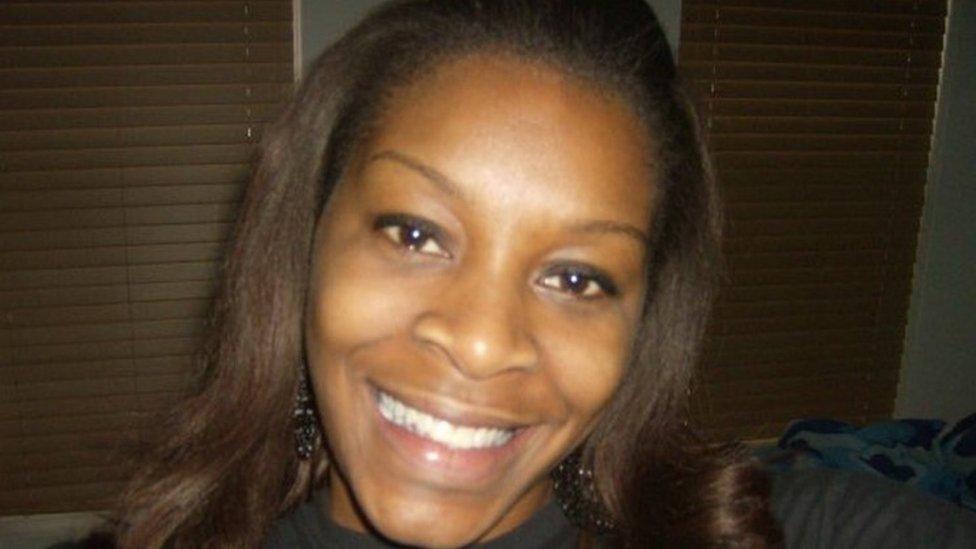The unique fear of driving while black
- Published
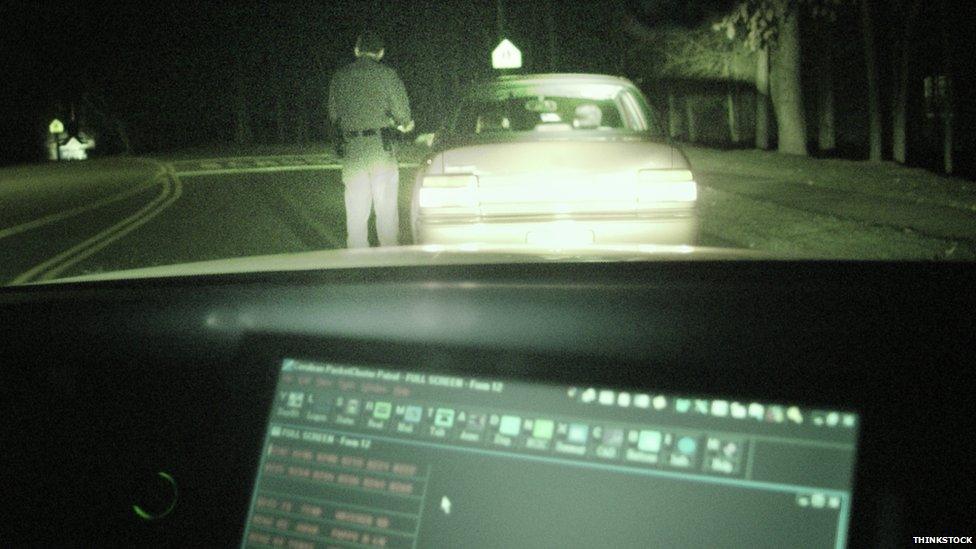
"There's no such thing as a routine traffic stop"-some can turn deadly
"Driving While Black" is a term used on Twitter, external to share incidents of alleged racial profiling by police officers while driving.
Many black Americans are warned from a very young age about how to interact with police when behind the wheel.
Some of the high-profile incidents that have ignited a national debate about policing came about from a traffic stop. Philando Castile was shot four times in his car in Minnesota, while last year Sandra Bland died in police custody after being pulled over.
Many black drivers feel they are targeted but supporters of police say that situations tend to escalate when drivers do not obey police commands.
Department of Justice statistics in 2011 show that, external more black drivers (12.8%) are pulled over than white (9.8%) or Hispanic (10.4%).
Two black men give their experience, and a police officer responds.

'Turn your music down'

Dominique Purdy produced a movie called Driving While Black to describe the experience
Dominique Purdy was born and raised in Los Angeles, a city that is no stranger to police violence. Being treated poorly by police officers is something he says he deals with nearly every day.
He took that daily struggle and put it on camera with the movie Driving While Black, external, a dark comedy, which he debuted last year.
Recent media attention on police brutality against black Americans did not push Purdy to make a movie. It had been in his head for years.
"The way the police treat black people isn't going to change overnight so in the meantime we've got to figure out ways to deal with cops when we are pulled over that doesn't get us shot," he told the BBC.
He will be driving around Los Angeles, playing music, like everyone else around him - but if a cop comes around, he immediately turns his music down.
"I don't even like to look at police," he said. "I gotta turn my music down and act like I'm not having a good time. I'm so used to it, it's not really that crazy to me. I gotta get up and brush my teeth, that's what it is, as normal as that."

Jamie Campbell, college professor, central Pennsylvania
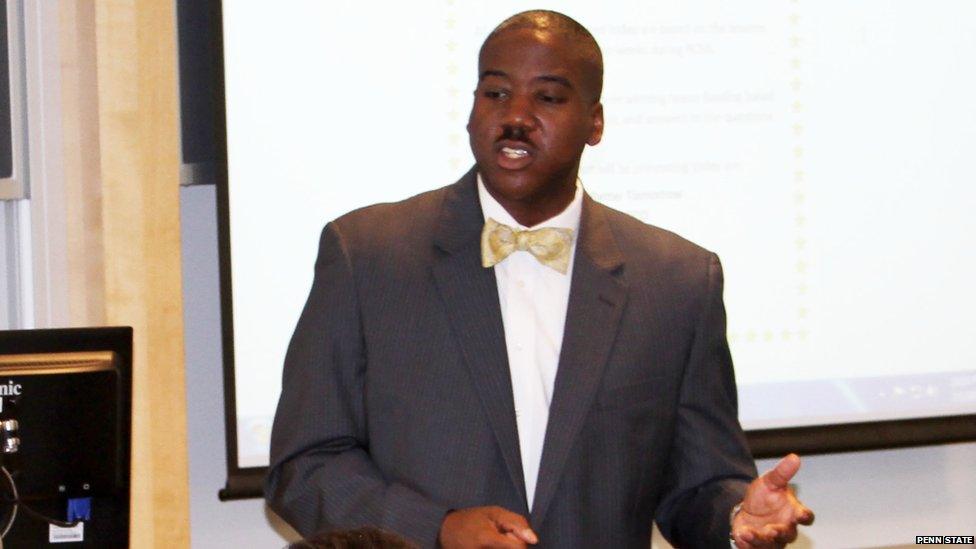
Jamie Campbell works at a mostly-white university
Jamie Campbell is an assistant dean with the business school at Penn State University, located in State College, Pennsylvania. The school is a sprawling, 40,000 student university that is largely white. According to statistics for enrolment university-wide in 2015-16, the campus is nearly 70% white and only six percent black.
The unique fear of driving while black has been on Mr Campbell's mind since he was a young man driving around the country recruiting for a Southern college.
"My dad told me when I was driving to be extra careful. It goes back to how officers will look at you as an African American driving," he said.
He still thinks about it daily-the nervousness, the concern, what he calls the "very real" fear.
Black Americans like himself always have to make sure they are not doing anything to attract attention, he said.
When he watches news coverage of cases of black Americans dying after being pulled over by police, he said he thinks it could have been him, his wife, his daughter or one of his cousins.
Mr Campbell thinks one solution is to get more officers of colour on police forces. He cited statistics in Pennsylvania- of all the state troopers, only three percent are black.
His parents grew up with the idea that the police could "get them" and nothing would happen as a result. When he was growing up, he knew police aggression was a possibility, but did not expect it.
He worries things will feel for his children like they did for his own parents.
"If things don't change, it's going to be that way."
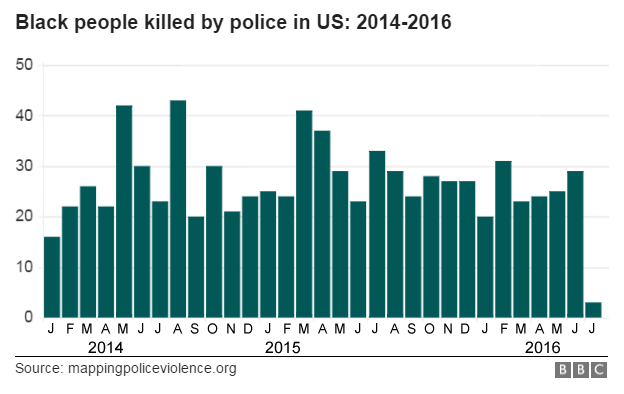

Sean Whitcomb, Seattle Police Department
Sergeant Sean Whitcomb, public affairs director for the Seattle Police Department, said the notion that black people need to be afraid while driving has been in the public consciousness for a long time.
"We are fully aware of the disproportionality within the criminal justice system. We understand there is an incredible ripple effect when someone is incarcerated… These are things we fully acknowledge and accept as a challenge in our country," he told the BBC.
In Seattle, policing tactics are undergoing a big change. After an officer-involved shooting in 2010 of a Native American man, the Department of Justice recommended a consent decree for the department after finding it "engaged in a pattern or practice of excessive force" violating constitutional law.
In 2012, Seattle officers were no longer allowed to stop a pedestrian or driver unless they have documented facts that they suspect a crime is about to happen. Other new policies include a use of force policy and a "bias-free" policing policy.
"We just want to get to the truth of the matter. You look at those shootings, other incidents, and from the police side when there's no supporting evidence it creates serious issues of trust in regards to our profession, that will erode legitimacy."
The department is in the process of implementing a permanent body camera programme, and Mr Whitcomb said he feels they have a "moral obligation" to use them.
"The challenge is to work harder and build trust and build towards increasing our legitimacy in the African American community, or any community that has a concern."
- Published7 July 2016
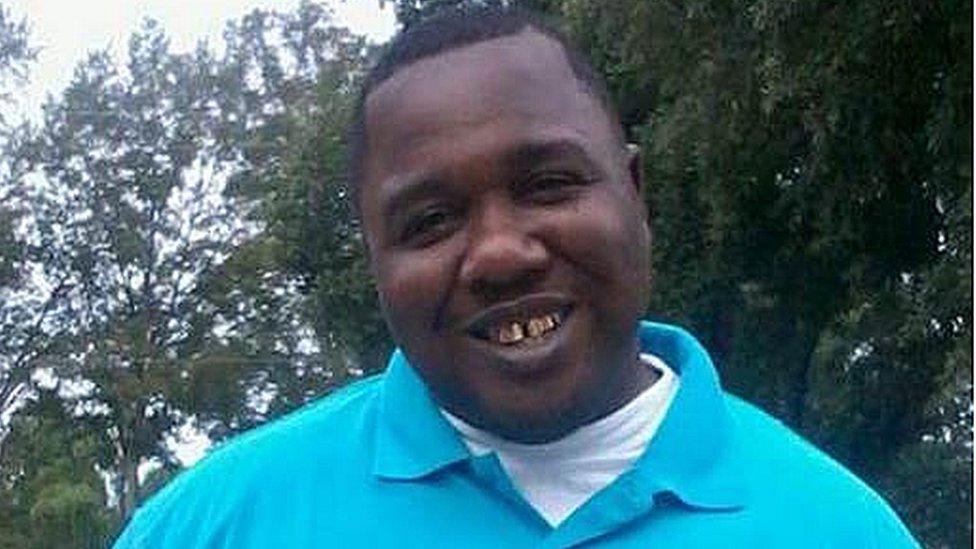
- Published7 July 2016
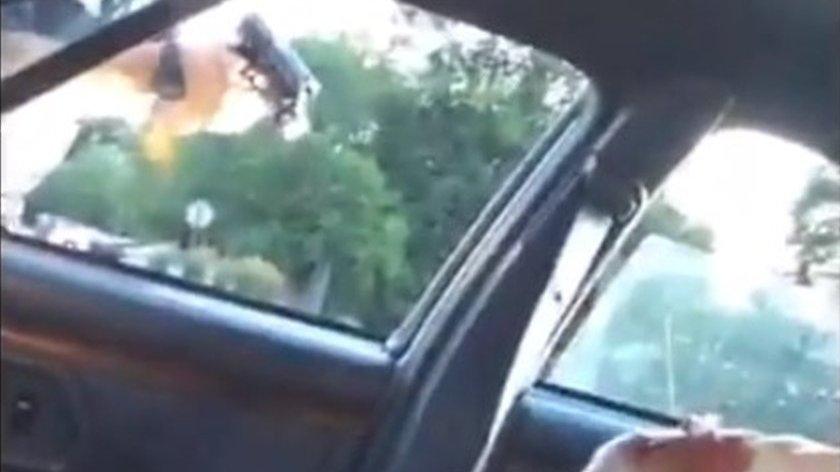
- Published25 July 2015
